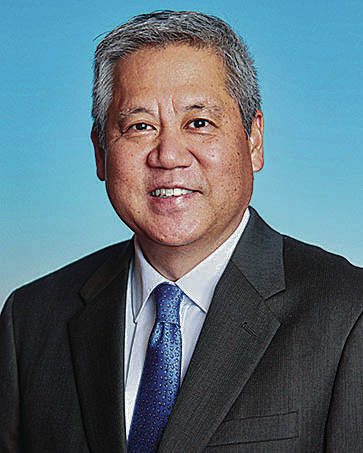The president and CEO of the Kona-Kohala Chamber of Commerce took issue Monday with House Speaker Scott Saiki’s statement a week ago that the University of Hawaii “should no longer manage Maunakea, and it should cease its work to extend the master lease.”
Two important astronomical observatories atop the mountain, W.M. Keck Observatory and Canada-France-Hawaii Telescope, have their headquarters in Waimea, South Kohala, as does the International Lunar Observatory Association.
“We are very concerned here on Hawaii Island,” Wendy Laros said during a Monday informational briefing of the House Select Committee on COVID-19 Economic and Financial Preparedness.
“The idea of scrapping the existing management to start a new process is counterproductive to supporting the astronomy industry, an industry that generates needed economic diversity to our state,” Laros told the committee. “This is simply not the time to create more uncertainty to Hawaii’s economy as our state continues to struggle due to COVID-19 impacts, and will do so in the foreseeable future.
“We just ask that you will work with and support the university to create solutions.”
The UH lease with the state Department of Land and Natural Resources for the 11,288-acre Maunakea Science Reserve expires in 2033, and a nonexclusive easement for the Maunakea Access Road, about 71 acres, also expires in 2033. The lease for the 19-acre Halepohaku mid-level facility expires in 2041.
“The university has tried its best to manage Maunakea, but for too long, the university’s work has been shrouded by its inability to appropriately manage cultural practices, resources and education,” Saiki said in a House floor speech last week.
The mountain was the site of protests and arrests in 2019, when opponents of the Thirty Meter Telescope project staged a massive blockade of the access road, stalling construction activities for months before winter. Then the coronavirus pandemic set in, further delaying the start of construction.
Saiki, who chairs the COVID-19 economic committee — which is a panel including medical and business leaders as well as legislators — stopped short Monday of making any commitments in his reply to Laros.
“I just want to assure you that I have been working and have been in communication with the university for over a year on this topic, as well as other interested parties,” Saiki said. “We have tried to see what options are available for the state, and I just felt at this point that to provide more stability with our astronomy industry, that we need to look at a new way of governing, a new form of governance on Maunakea.”
Saiki said last week he would introduce a resolution in the House “to begin the process of reassessing a new governance structure for Maunakea.”
The future of the mountain’s master lease is vital to the astronomy community.
Greg Chun, UH’s director of Maunakea stewardship, said last week the university will continue its efforts to secure an extension to the Maunakea master lease “because we have to, we need to.”
Opponents of TMT, a next-generation telescope backed by an international consortium with an estimated price tag of $2.4 billion, hailed Saiki’s announcement and said they are hoping for a prominent seat at the table in any new management structure.
Email John Burnett at jburnett@hawaiitribune-herald.com.









